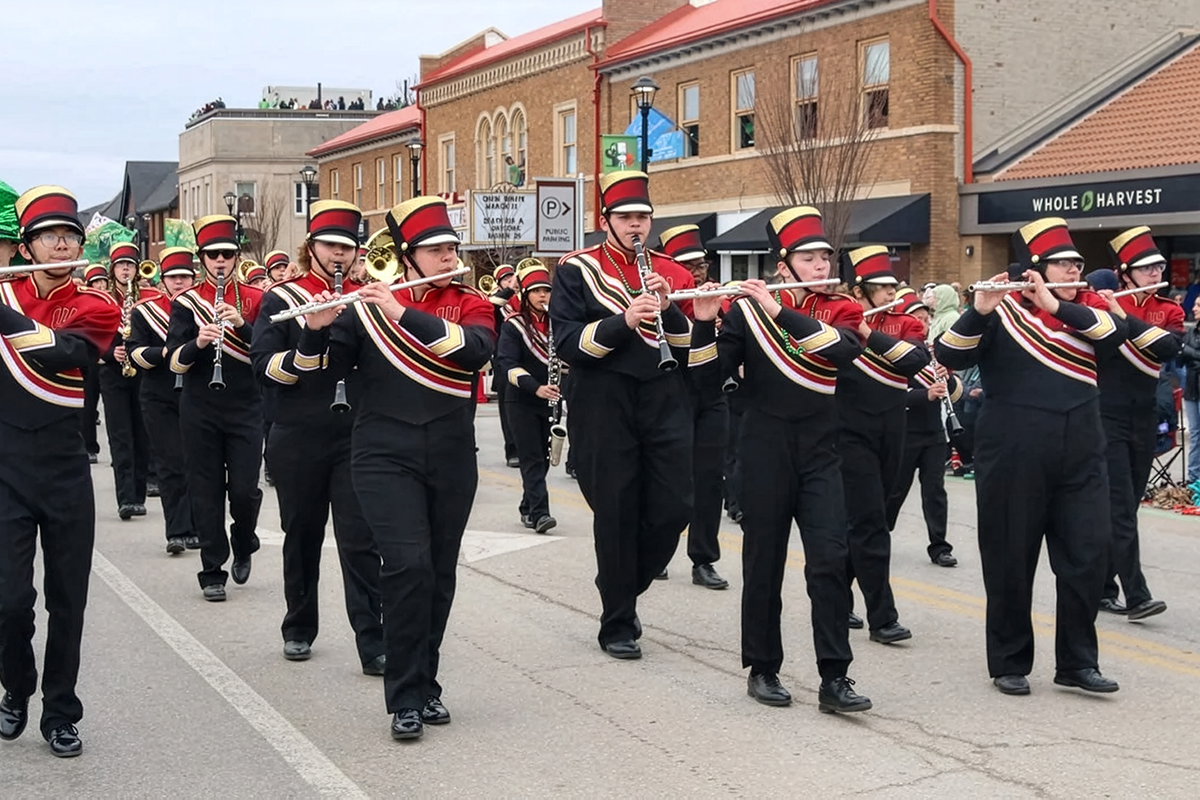These prominent golden-agers talk about lifelong achievements, what they learned through the years, what they are planning on next and how living longer is a rewarding daily adventure.
Bobby Bell
Birth date: June 17, 1940, Age: 84
Interviewed by David M. Block, David Hodes and Pete Mundo

“My dad told me, ‘Don’t be doing anything where you have to be looking over your shoulder all the time.’”
If you know anything about Kansas City Chiefs football, you know about the first Chiefs Pro Football Hall of Famer, Bobby Bell. He was also enshrined in the College Football and Missouri Sports Halls of Fame.
At 6 feet 4 inches tall and 228 lbs., Bell was an imposing and inspiring player back in the early days of Lamar Hunt’s American Football League, giving it his all every time he stepped onto the field. He signed with the Chiefs in 1963 for a 12-year run, first as a defensive end and later an outside linebacker.
Bell played in 168 games in his professional football career, including two Super Bowls. His number, 78, was retired in honor of his achievements during his career.
Awards

As a linebacker, he was named All-AFL or All-NFL every year from 1965 through 1971. He scored nine career touchdowns off fumbles, interceptions and once, a return from an onside kick.
Football back in the ’60s and ’70s was tough. No heavily padded gear. No help with players suffering from concussions. Everybody played injured.
None of them were earning anywhere close to what today’s players earn. In the AFL in 1968, minimum salaries were $9,000 for rookies and $10,000 for veterans. If you played professional football then, you did it for the love of the game. You played with heart.
The Road to the Pros

Bell was born in a small town down in Shelby, North Carolina, and grew up with small-town values. He had no idea that he would have an opportunity to play football at a big university such as the University of Minnesota, where he showed the college football world what he could do. He never took his success for granted. “A lot of young kids look at these football players or baseball players today as a success,” Bell says. “They think that it came easy. But my dad told me anything that comes easy, you have a tendency to get rid of it. If you work hard for it, you don’t want to give it up. That’s what happened to me.”
Bell was an all-state quarterback in high school and in his freshman year at the University of Minnesota, then switched to offensive tackle his sophomore year at the university. He was the most decorated college lineman of the 1962 season.
It was in Minnesota where he witnessed issues of segregation in the game, realizing in the ’60s, a time of volatile social upheaval, that he was playing a role in changing the game.
Quarterback Sandy Stevens was the first Black All-American at Minnesota. “We had an all-Black backfield,” Bell says. “This was when the whole state of Minnesota was two percent Black. Playing there was for me. I could not let my dad down, my mom, my sister, my brother, my kinfolk and all the Black people in Shelby I represented.”
Bell says he “pushed away a lot of things” to get to where he is today. He fought negative stereotypes and the like. “I look around now and instead of you saying you can’t find a Black quarterback, now you can’t find a white quarterback. It’s changed. It’s flip-flopped. Sixty percent of the players that we had in the AFL were from Black universities. That’s the way it was in the AFL.”
The Intensity
Bell was a serious force to be reckoned with on the gridiron: a positive guy always, a serious no-nonsense guy on the field who could be counted on to deliver.
Asked about his intensity on the field in a tough game where linebackers usually get pretty beat up, he says that he wasn’t the one getting beat up. “I was the one beating up people. I was the beater.”
When Bell came to the Chiefs, he told coach Hank Stram he could play any position. “Anything I did, I wanted to be the top guy,” Bell says.
He negotiated his pro football deal directly with Lamar Hunt, who wanted him to be “part of the family.” Bell recalls a story that happened right after signing the deal. He was traveling to New York for business, and Hunt decided to travel with him. They shared a cab into the city. When they got to Hunt’s hotel, Hunt jumped out and told Bell to pay the cab fare, which included the 15 cent toll. “I then got to my hotel, paid the cab, got checked in, ran upstairs and got on the phone,” Bell recalls. “I called a friend back in Minnesota and asked him if I did the right thing signing and agreeing to what they would pay me. He said, ‘Yeah, that’s enough.’ I said, ‘Are you sure? Because Lamar Hunt is broke. I had to pay for the cab.’”
But that wasn’t the end of the story. Every year, Bell got a birthday card from Hunt until Hunt’s death in December 2006. “On my 60th birthday, I get a card from him,” Bell says. “I open it up. He had pasted 15 cents in the card for the toll from the cab ride. I asked him, ‘Where’s the rest of the money?’ He said, ‘It’s in the mail.’”
Other Jobs
During his years with the Chiefs, Bell considered playing football to be his part-time job. He worked full time for General Motors in Kansas City. “It was, ‘Hey, every day, I got to go to work, man.’ So I treated football as my second job. I had to do that. I had to make a living.”
He asked other players about the pay for appearing in the Pro Bowl in 1970, the first of three he played in. “And this guy said if we win it, we get $500. If we lose, we get $250,” Bell says. “We had some guys who were not playing the Pro Bowl because they said they were losing money.”
What’s his reaction to pro football players today making millions—like Chiefs Quarterback Patrick Mahomes’ half-billion dollar deal? “I feel like I came out too early,” he says with a laugh. “I mean, can you imagine? That’s unreal. They make more money in endorsements than they do playing.”
Bell retired from the Chiefs in 1974 and started his own business chain of five stores, Bobby Bell BBQ. He sold them in 2005 to focus on appearances for fundraisers, speaking to kids and going to golf tournaments. He played in 53 golf tournaments in one year, he says, three of them in Kansas City.
During his retirement, he followed on a promise he made to his father when he first left home as an 18-year-old chasing his pro football dream: He would complete his remaining college studies and get his diploma. He graduated in May 2015 at age 74.
“If I say I am going to do something, I’ll do it,” Bell says. “That’s me.”
That Chance
When he looks back on his life, Bell says that everything started from the University of Minnesota. “If I hadn’t got that chance, I don’t know where I’d be,” he says. “I’d never been on a plane before. I had never been out of North Carolina before. I could have stayed there, but I took that chance. I tell people that you have to take that chance. If somebody gives you that opportunity, take advantage of it. I took advantage of it. Although I was scared, I did it.”
“My dad told me anything that comes easy, you have a tendency to get rid of it. If you work hard for it, you don’t want to give it up. That’s what happened to me.”
“Anything I did, I wanted to be the top guy.”





